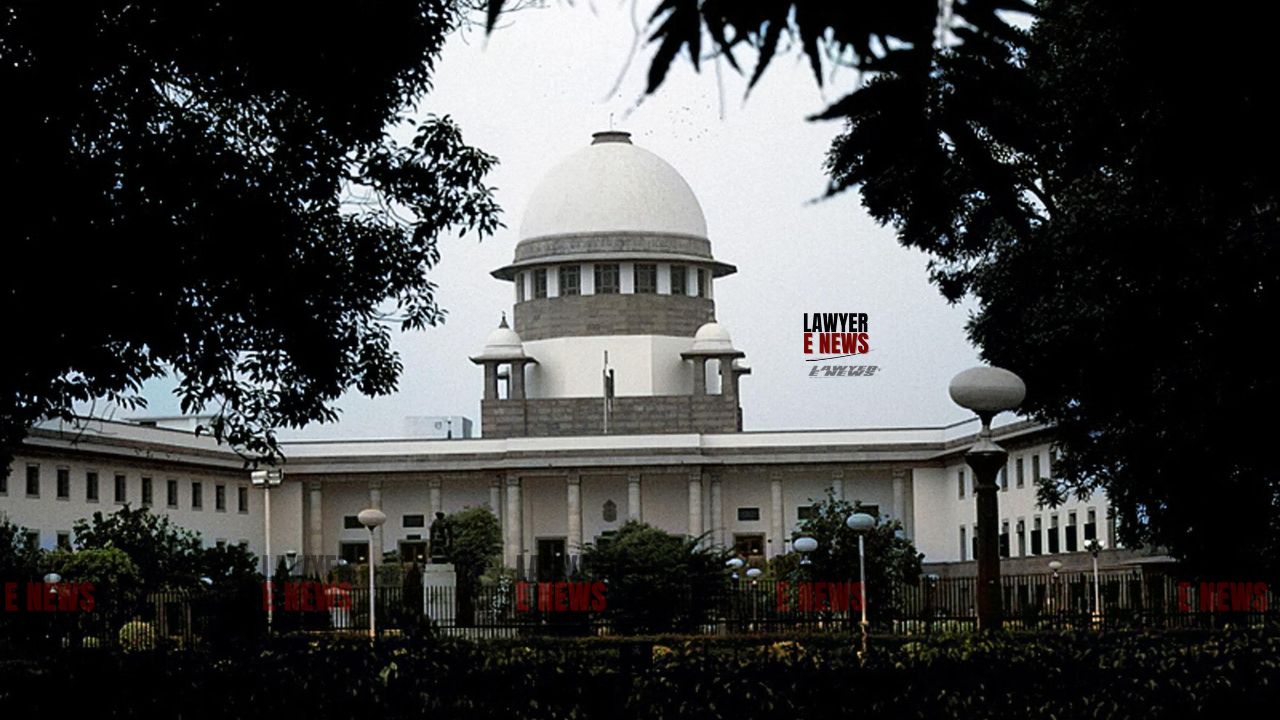-
by Admin
15 February 2026 5:01 PM



Statutory Jurisdictions Under Payment of Wages Act and Industrial Disputes Act Cannot Be Supplanted by Arbitration - Supreme Court of India holding that disputes relating to non-payment of wages and wrongful termination fall under the exclusive jurisdiction of statutory authorities under the Payment of Wages Act, 1936 (PW Act) and the Industrial Disputes Act, 1947 (ID Act), and are therefore non-arbitrable. The Court set aside the High Court of Madras's order appointing an arbitrator and dismissed the employer's arbitration petition under Section 11(6) of the Arbitration and Conciliation Act, 1996, with costs of ₹5 lakh imposed on the employer for abusing the process of law.
The dispute arose when the appellant, Dushyant Janbandhu, challenged his termination by M/s Hyundai AutoEver India Pvt. Ltd., citing non-payment of wages and wrongful dismissal. The employer sought to bypass statutory remedies by invoking an arbitration clause in the employment agreement and initiating arbitration proceedings, including claims related to a non-disclosure clause that had not been raised earlier.
The Supreme Court, in a judgment authored by Justice Pamidighantam Sri Narasimha, reaffirmed that disputes governed by statutory frameworks such as the PW Act and ID Act are non-arbitrable due to their public interest implications and exclusive jurisdictional provisions.
The appellant was employed as an Assistant Manager in March 2019 and terminated on January 21, 2021, following a disciplinary inquiry. During the termination process, the appellant approached statutory authorities under Section 15(2) of the PW Act for non-payment of wages and under Section 2(A) of the ID Act for challenging his termination. The respondent, instead of defending the claims before these authorities, sought to initiate arbitration by invoking the arbitration clause in the employment agreement.
The High Court of Madras, in August 2022, allowed the respondent's Section 11(6) petition under the Arbitration and Conciliation Act, appointing an arbitrator to adjudicate the disputes. The appellant challenged this order before the Supreme Court, arguing that the disputes were non-arbitrable and fell within the exclusive jurisdiction of statutory authorities.
The Court observed that the appellant's claims for unpaid wages were already under adjudication before the Authority under the PW Act, and his challenge to termination was pending before the Industrial Tribunal. These statutory remedies are designed to protect employee rights and provide exclusive jurisdiction to statutory authorities.
"Section 22 of the Payment of Wages Act explicitly bars civil courts—and by extension, arbitral tribunals—from entertaining disputes regarding wages that fall under the purview of the statutory authorities."
Similarly, disputes over wrongful termination fall squarely under the Industrial Disputes Act, and the Court emphasized that arbitral tribunals cannot usurp the jurisdiction of Industrial Tribunals, as held in Vidya Drolia v. Durga Trading Corporation (2021).
The employer introduced a claim for breach of the non-disclosure clause (Clause 19 of the employment agreement) for the first time in the arbitration proceedings. The Court rejected this as a fabricated claim, noting that it was not part of the original show-cause notice, inquiry report, or termination order.
"There is no factual basis for the claim under the non-disclosure obligation. It is an afterthought meant to coerce the appellant, and it cannot form the basis for an arbitrable dispute."
The Court strongly criticized the employer’s attempt to use arbitration as a tool to intimidate the appellant, who was lawfully pursuing statutory remedies. The respondent's actions were deemed a clear abuse of the process of law.
"The employer's invocation of arbitration was a malicious attempt to threaten the appellant for approaching statutory authorities. Such abuse of legal remedies cannot be countenanced."
Reiterating the principle of non-arbitrability of disputes involving statutory rights, the Court relied on its earlier judgments in Booz Allen and Hamilton Inc. v. SBI Home Finance Ltd. (2011) and Vidya Drolia v. Durga Trading Corporation (2021). It emphasized that matters affecting public policy, third-party rights, or requiring centralized adjudication cannot be subjected to arbitration.
"Disputes are non-arbitrable when the subject matter is governed by mandatory statutes that explicitly or implicitly exclude arbitration."
The Supreme Court allowed the appeal and set aside the High Court’s order appointing an arbitrator. It dismissed the respondent’s Section 11(6) petition under the Arbitration and Conciliation Act. Additionally, the Court imposed costs of ₹5 lakh on the employer for misusing arbitration proceedings to harass the appellant. The costs are to be paid within three months.
The judgment reinforces the principle that statutory disputes concerning employee rights, such as non-payment of wages and wrongful termination, are non-arbitrable. It underscores the need to respect statutory remedies and warns against the abuse of arbitration mechanisms to bypass lawful processes.
Date of Decision: December 11, 2024
